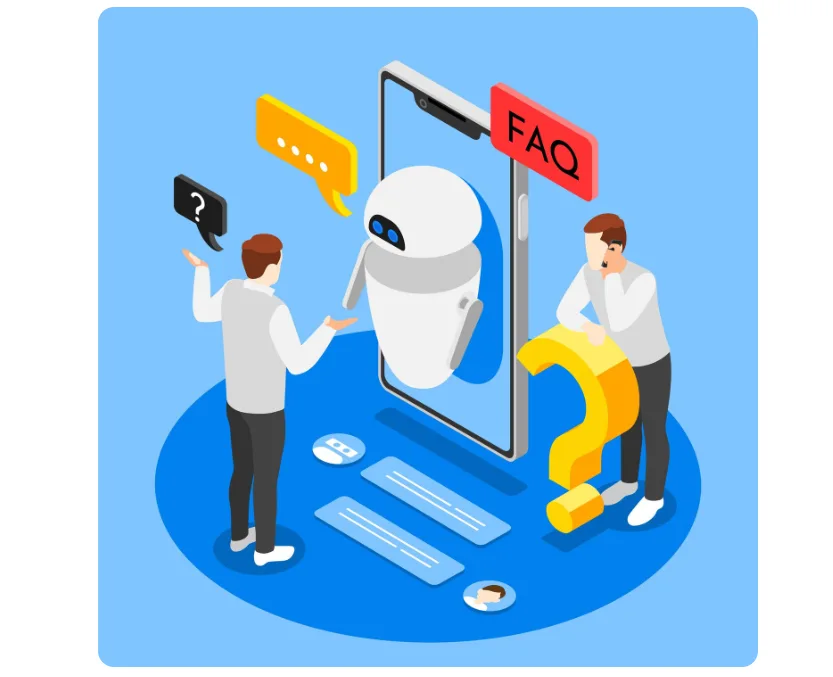On-Premise Conversational AI Agents

Conversational AI has transformed customer service and employee productivity across industries, but the text-based nature of these interactions often contains the most sensitive business information, customer data, and proprietary knowledge that organizations cannot afford to share with external platforms. On-premise conversational AI agents deliver sophisticated chatbot capabilities, intelligent virtual assistants, and automated customer service solutions while ensuring that every conversation, customer inquiry, and business interaction remains completely within your secure enterprise environment. Unlike cloud-based conversational AI services that process your messages on external servers, on-premise deployment provides absolute control over conversation data, response customization, and integration with proprietary business systems that contain competitive advantages and confidential information. These advanced conversational AI systems excel at understanding complex multi-turn dialogues, maintaining conversation context across extended interactions, and providing personalized responses that draw from your specific business data, customer history, and organizational knowledge base. For organizations implementing comprehensive AI strategies, our complete guide to on-premise AI agents offers essential context for positioning conversational AI within a broader enterprise AI ecosystem.
Core Conversational AI Capabilities and Features
Advanced Natural Language Processing and Understanding
- Intent Classification and Recognition: Machine learning models supporting 100+ predefined business intents with unlimited custom development
- Entity Extraction and Context Management: Named entity recognition for dates, names, product codes, account numbers with conversation context maintenance
- Sentiment Analysis and Emotional Intelligence: Real-time mood detection with automatic response tone adjustment and escalation triggers
- Multi-Language and Dialect Support: 40+ languages with regional variations, cultural context understanding, and automatic language detection
Dialog Management and Conversation Flow
- Multi-Turn Conversation Handling: Context maintenance across extended interactions with complex branching conversations
- Dynamic Response Generation: Template-based responses with real-time data integration for personalized customer interactions
- Escalation and Handoff Management: Seamless human agent transfer with complete conversation history and context preservation
- Conversation Analytics and Optimization: Pattern recognition and success strategy identification for continuous improvement
Integration and Deployment Capabilities
- Multi-Channel Deployment Architecture: Unified operation across websites, mobile apps, messaging platforms, and internal portals
- Enterprise System Integration: Native CRM, help desk, ERP, and custom application connectivity through APIs and webhooks
- Custom Knowledge Base Integration: Connection with documentation systems, product catalogs, and procedural guides
- Security and Access Control: Role-based access, conversation encryption, audit logging, and identity management integration
Enterprise Integration and Deployment Strategies
The successful deployment of on-premise conversational AI requires careful consideration of existing enterprise systems, business processes, and organizational workflows that will interact with and benefit from intelligent automation capabilities. Unlike simple chatbot implementations, enterprise conversational AI must seamlessly integrate with complex business ecosystems while providing secure, scalable, and maintainable solutions that evolve with changing business requirements and technological advances.
Enterprise integration strategies must address the critical challenge of connecting conversational AI systems with existing customer relationship management platforms, help desk solutions, inventory management systems, and proprietary business applications that contain the data necessary for meaningful customer assistance. This integration complexity requires sophisticated API management, data transformation capabilities, and real-time synchronization mechanisms that ensure conversational AI agents have access to current, accurate information while maintaining data security and system performance standards.
Performance Optimization and Return on Investment
The business value of on-premise conversational AI extends far beyond simple cost reduction, encompassing improvements in customer satisfaction, employee productivity, operational efficiency, and competitive advantage that require sophisticated measurement and optimization strategies. Understanding and maximizing these benefits requires comprehensive performance monitoring, continuous optimization processes, and strategic alignment with broader business objectives.
Performance optimization for conversational AI involves multiple dimensions including response accuracy, conversation completion rates, user satisfaction scores, and system reliability metrics that must be continuously monitored and improved based on real-world usage data. Organizations typically see immediate benefits in routine inquiry handling, appointment scheduling, and information retrieval, while longer-term value emerges through improved customer insights, process optimization, and the ability to scale customer service capabilities without proportional increases in staffing costs.
FaQ's
How do on-premise conversational AI systems integrate with existing CRM and business applications?
Integration occurs through RESTful APIs, pre-built connectors for systems like Salesforce and ServiceNow, direct database connectivity, webhook support for real-time updates, middleware integration for legacy systems, and SSO integration with existing identity management.
What specific business processes can be automated using on-premise conversational AI?
Automation includes customer service (70-80% resolution rates), employee self-service, sales lead qualification, order processing and e-commerce support, technical support, and compliance/documentation processes with full audit trail maintenance.
How accurate and reliable are on-premise conversational AI systems for business-critical applications?
Modern systems achieve 92-97% intent recognition accuracy for trained business domains, 85-95% response accuracy for factual inquiries, 75-85% conversation completion rates for routine processes, 99.5%+ system uptime with proper configuration, and continuous quality improvement through machine learning and feedback integration.
What ongoing maintenance and support requirements exist for conversational AI systems?
Requirements include monthly conversation analysis, quarterly intent model updates, regular knowledge base updates, continuous performance monitoring, security maintenance and patch installation, integration updates for business system changes, and user support including training and documentation updates.
How can organizations measure the business impact and success of conversational AI implementations?
Success metrics include conversation resolution rates (target: 75-85%), average handling time reduction (40-60% improvement), customer satisfaction improvements (15-25% increase), cost per conversation reduction, response accuracy monitoring, escalation frequency tracking, and ROI calculation based on efficiency gains and cost avoidance.
Volkan Demir is the Co-Founder of Mindhunters.ai – Intelligent Sales & Customer Engagement, a platform that leverages conversational AI to transform how businesses sell and support at scale.

